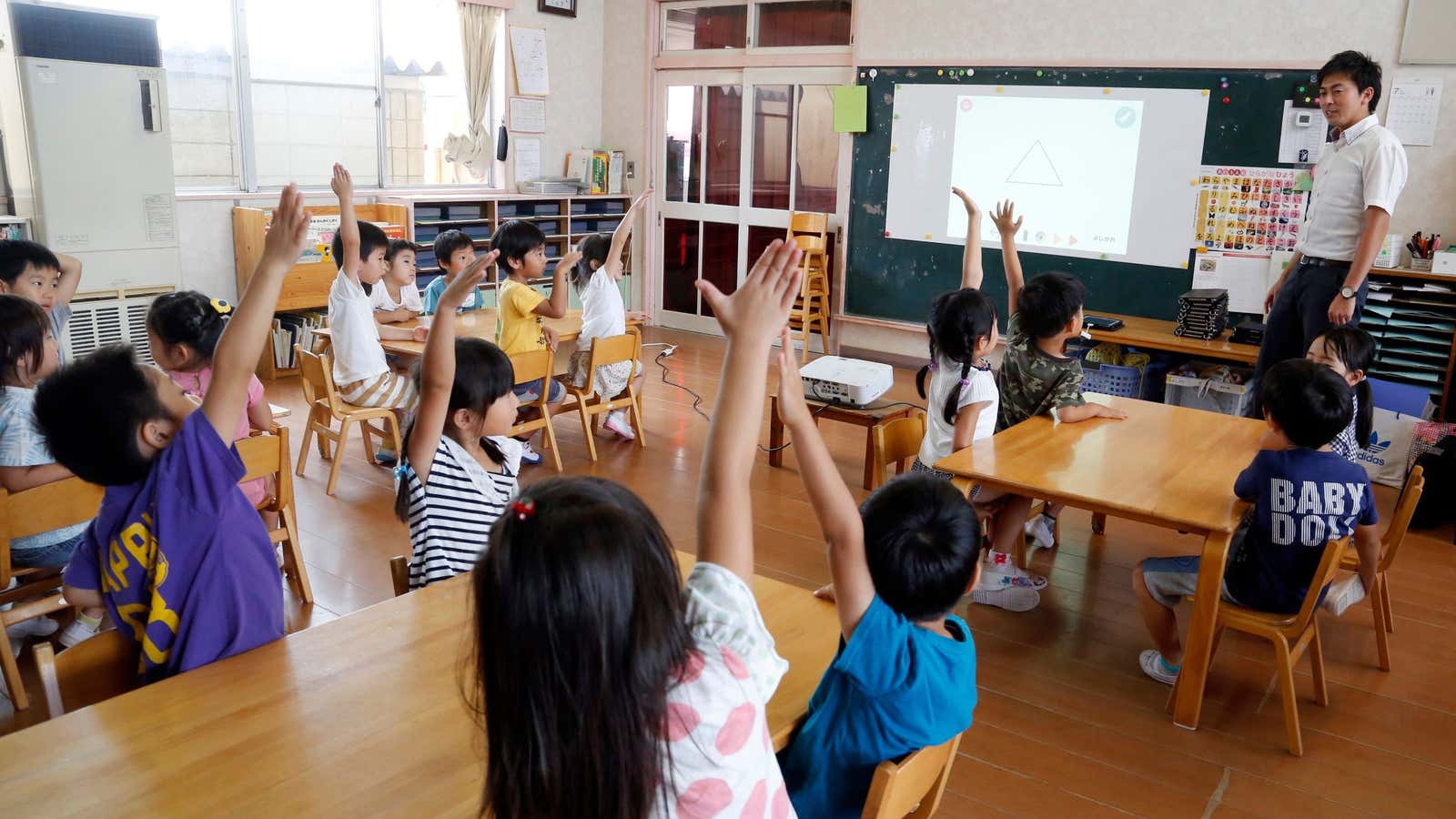When another mother first asked me what my plan was for my oldest son’s “transition program,” I not only did not have such a plan, but I did not know what a transition program was.
In less than three years, I’d gone from being an independent New York City professional woman to a wife, suburbanite, and mom. The only thing about my life that hadn’t changed was that I still had a demanding job, and at times, balancing this job with my new life as a parent seemed impossible. This was one of those moments where I felt as though I still had a lot to learn about parenting and my new community.
It turns out that a transition program helps toddlers adjust slowly to being without their primary caregivers. The kids go to preschool with their caregivers the first half of the year, but the second half of the year becomes “drop off and pick up.” I ended up enrolling my son Ben in the same program as the mom who had asked me about my plans.
When the transition program started, I knew I didn’t want to miss the very first day. I changed my designated work-from-home day to make sure I was there, and we all went together—me, Antonette (Ben’s caregiver), Ben, and our new baby, Jack. I introduced myself to the teachers and the other mothers—and realized almost immediately that I was the only working mom in the class. The moms all knew each other, and while they were friendly, I felt a bit out of place.
The year went well, but as the new year rolled around and it was time to enroll Ben in his second year of school, I thought about what hadn’t felt quite right the prior year. I quickly realized the issue: I didn’t have a community of women who were in the same situation as me, balancing work and family. I felt guilty that I struggled with “being in the moment” with my kids because I had other obligations that were top of mind. This was a constant issue, and I had nobody with whom I could talk about it.
So, I asked for what I needed. When we enrolled Ben in his new school, I met with the director and said that I would love for him to be in a class with other children of working moms. She immediately said, “no problem” and told me that out of six classes, one class was predominantly children of working moms. These women—10 of the 13 total—had asked for the exact same thing.
On the first day of orientation for the new class, I was excited to meet the other moms. But as the parents filled the halls and classrooms, I noticed something unexpected. Most parents were walking in with labeled shoeboxes. I didn’t have a shoebox. Why didn’t I have a shoebox? Nobody told me about the shoebox. I anxiously walked into our classroom, sat in the little chair and asked Ben’s teacher nervously about the shoebox. Many of the other moms looked as anxious as I did and happy I asked the question.
The teacher smiled and said, “Don’t worry about it, it’s all good, I’ll tell you everything you need to know. And just so you can all stop worrying, I promise I won’t send you emails on Sundays about what you need on Monday. I know you need lead time.” The other moms and I started talking about what we did professionally, what our challenges were, and how we get through them. I had found my home.
The next morning, I told Antonette how excited I was about Ben’s new school and class. I told her that I was excited for her to meet the other caregivers. Community wasn’t just important for me, it was important for Antonette as well.
Prior to attending the transition program, Antonette was out with the kids every single day with a group of caregivers, a community that she personally cultivated. They backed each other up and had fun together, all while taking amazing care of our children. I didn’t want her to feel like this was taken away from her just because school started. I wanted her to have the chance to expand her own community as well.
I am optimistic about this year and am excited to build my community, watch Ben build his, and Antonette build hers. We all have our tribes, and even with the inevitable challenges, that makes everything better.
Karen Niovitch Davis is a partner and chief HR officer at Prosek Partners.
